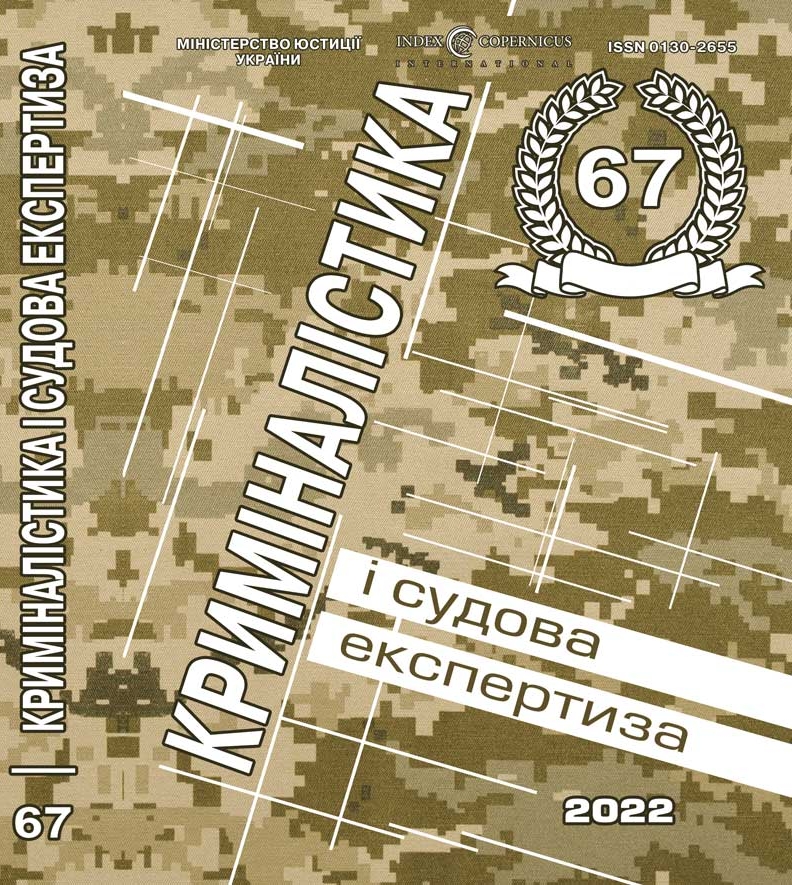
DOI: https://doi.org/10.33994/kndise.2022.67.04
V. Tertyshnyk, V. Varava
The article reveals the problems of forensic examination in the integrative doctrine of evidentiary law, taking into account the provisions of the Constitution of Ukraine, procedural legislation, the case-law of the European Court of Human Rights, and judicial precedents of the Supreme Court of Ukraine. In the context of the formation of its doctrinal principles and individual legal institutions, we propose to consolidate here the provisions of the following content: “The evidence is the factual data obtained in accordance with the procedure provided by law that meet the requirements of belonging to the case, admissibility and reliability”.
Factual data obtained during the conduct of expert studies, investigators or other procedural or regulated by separate laws of research actions can be used in legal evidence, provided that the source and method of their obtaining, the evidence obtained, are not “fruits of a poisonous tree” are clarified and can be verified. The peculiarities of the expert’s conclusions and written conclusions of specialists are disclosed, and a simplified procedure for assigning examinations and the formation of the results of expert research is proposed.
It is concluded that it is necessary to adopt a universal legislative act – the “Code of Evidence”. It is proposed to include in its conceptual model the norms of the general and special parts. In the general part, at the integrative level, intersectoral characters should be set out, norms common for all forms of legal proceedings, which will determine the concepts and types of evidence and the criteria for their admissibility. In a special part, modern norms should be laid down – standards of evidentiary law governing the receipt, research, verification, evaluation, and use of evidence, the production of forensic examinations.
It is proposed to differentiate art and humanitarian examination, the need to expand the types of examinations and the formation of the subject and features of such independent examinations as forensic and humanitarian, legal, stock market examination, environmental and land examination are being bypassed.
Key words: examinations, expert conclusions, evidence, evidentiary law










